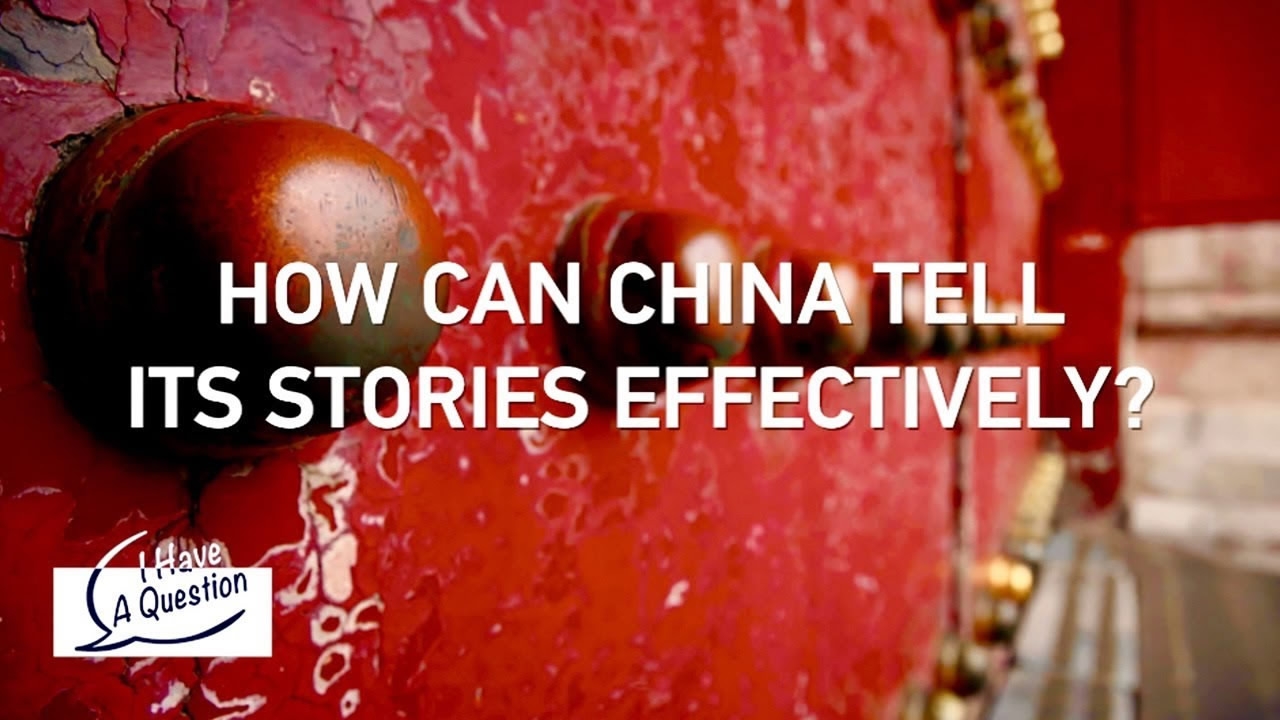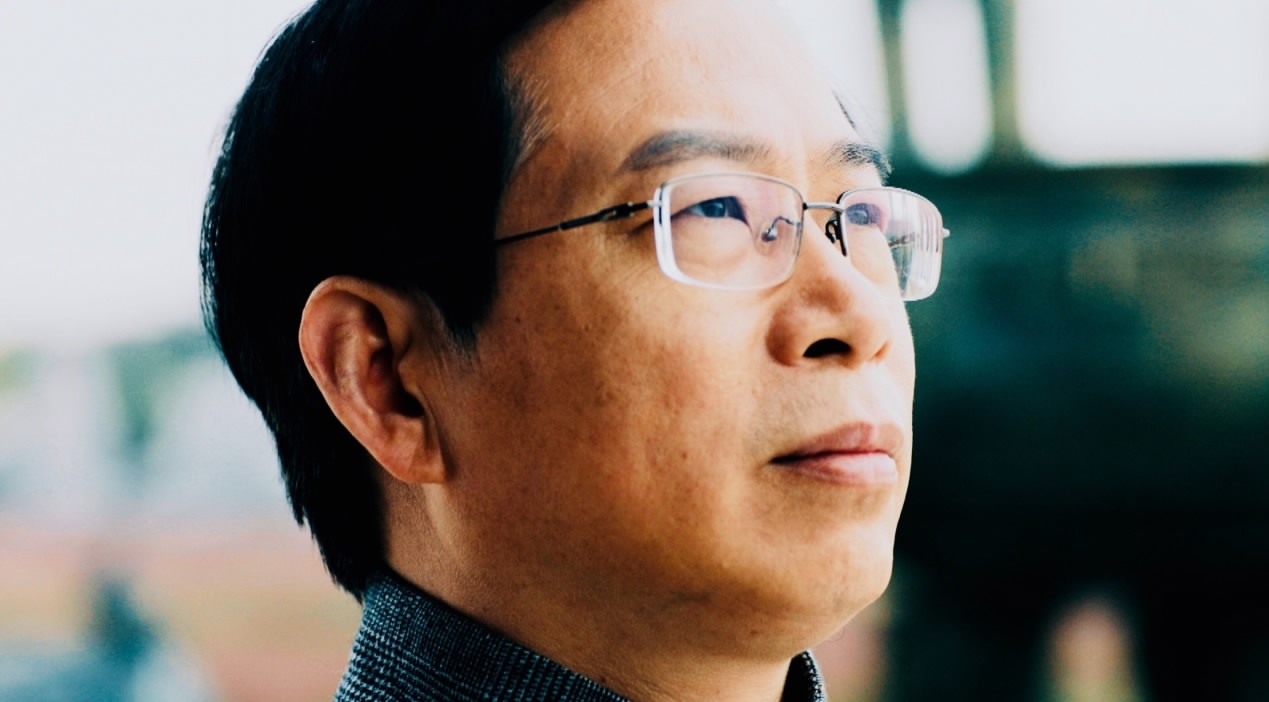
Culture
23:14, 10-Mar-2018
I HAVE A QUESTION: What is China’s soft power telling the world?
By Han Bin, Wei Lynn Tang, Zhuang Yuying

HOW CAN CHINA TELL ITS STORIES EFFECTIVELY?
For a country that has thousands of years of history under its belt, and one that is still developing, at that – it also faces the risk of being misunderstood and misinterpreted.
But here is where China is at an interesting and opportune cross-road: It wants to tell its stories more effectively.
As the saying goes, "manners maketh man." For Chinese President Xi Jinping, it is culture that forms a country and nation’s soul. And what better example to display a country’s "soft power" than via its culture and the one entertainment industry that relates to all alike: The film industry.
Noted film director Feng Xiaogang is also a member of the Chinese People’s Political Consultative Conference (CPPCC). He said while China’s film industry has grown, the quality of films remains uneven.
“The question is: How do we transform the industry’s market capabilities to make it more culturally influential [on the world stage]?” asked Feng.
According to the State Administration of Press, Publication, Radio, Film and Television, China’s movie box office revenue rose over 13 percent to hit 56 billion yuan (8.85 billion US dollars) in 2017, with domestic films contributing 53.8 percent to the market.
In February 2018 alone, China’s box office took over 10 billion yuan (1.58 billion US dollars) in revenue – a record high.
IF RELICS COULD TALK…
At a time when various new media platforms are said to be giving traditional media a run for its money, the latter still plays an important role in helping to spread awareness.
The Henan Museum, located in the province’s capital city Zhengzhou, said it has seen its customer base increase geographically and demographically, after being featured on the "National Treasure" program on CCTV-3 – alongside eight other Chinese museums.
“Our visiting customers have increased by a third after the broadcast, especially the younger generation – those born after the 1990s, as well as families,” said Ma Xiaolin, the director of the museum.
One of China’s oldest museums, the Henan Museum has about 170,000 artifacts spanning across bronze, jade, porcelain and stones.
“The media effect is strong. Not only has it introduced the treasures, the broadcast has also brought to life the humanistic, family and national feelings behind these treasures,” Ma added.

Ma Xiaolin says the media plays an important role in introducing a country’s cultural relics. /CGTN Photo by Wang Jigang
Ma Xiaolin says the media plays an important role in introducing a country’s cultural relics. /CGTN Photo by Wang Jigang
This is part of China’s move to promote its cultural relics better, and in a bigger way.
When asked about balancing between preserving the museum’s culture and ensuring it stays economical, Ma acknowledged it is a challenge; but also pointed towards the institutional difference between Chinese museums and those overseas.
“Our aim is not to be profitable as our museum receives government funding [to protect the relics]. And hence we can continue to operate [even in bad times] – unlike many from overseas where they have to make money to survive,” Ma said.
But that’s not to say the museum has been resting on its laurels.
Ma said the museum has been holding exhibitions to allow its audience to better understand its artifacts. “We also take advantage of new media [platforms] to increase public awareness of these artifacts, and try our best to make culturally creative products.”
SILVER SCREEN, SILVER TONGUE
In his report to the 19th Party Congress last October, Xi Jinping said: “China's cultural soft power and the international influence of Chinese culture have increased significantly.”
Ma, while lauding the government for having invested a lot of money in the culture industry, said it is not enough in comparison with other countries. “There is a lot of potential for us because we have a lot of traditional and cultural resources.”
As a new CPPCC member, he is proposing utilizing cultural relics to promote China’s soft power.
- Export more Chinese cultural products
“We should produce cultural products to export overseas, so that foreigners can better understand Chinese culture. But first we have to understand the foreigners’ taste, in order to make these culturally creative products. It’s a long way to go.”
- Leverage on new media to enlarge influence
“We can take advantage of new media to tell the world about Chinese history, for example, making some of our exhibitions known online. The ‘National Treasure’ cultural variety program is one example.”
- Publish more archaeological books
“These books can be made public to introduce these great archaeological findings in China.”
Meanwhile, Feng Xiaogang said grooming talent is of the utmost priority, in order to increase the film industry’s quality. And this has to start now, he said.

Feng Xiaogang tells CGTN’s Han Bin that he would like to see China’s film industry exert more cultural influence in the world. /CGTN photo by Wang Jigang
Feng Xiaogang tells CGTN’s Han Bin that he would like to see China’s film industry exert more cultural influence in the world. /CGTN photo by Wang Jigang
He said the talent pool right now is unable to keep pace with that of the industry – which has seen a ten-fold increase in demand compared to before the market was opened up.
“We expect China’s film industry to be the world’s largest come 2020, with over 60,000 screens, an annual output of about 800 movies, and an annual box office of 70 billion RMB,” Feng said.
- Groom the next generation of high-quality directors
“The shortage of good directors in the next few years will be even more apparent as the industry’s production capacity expands. We could hire talent from around the world, but telling Chinese stories effectively is the mission of our time. And President Xi said only Chinese film directors can tell Chinese stories well. And so we have to groom these talents internally.”
- How to groom these talents?
“It may well be good to let these young directors be trained by the market, as China now practices a market economy. It will help them to grow faster, as the job of a movie director requires a lot of experience rather than just theoretical knowledge.”
- Calls for increased financial resources
“If we can increase funding for our 3-year program from 10 million RMB to 100 million to groom young talents, that would be great.”
According to Feng, the 3-year program is a youth assistance program set up by the Chinese Film Industry Association where the industry’s best have come forth – with no charge – to help guide this young pool.
He said almost a thousand young talents have participated in the past three years, and that 30 were selected each year to take front-line roles like directors, producers. “And we further select a final 5 at the end [of the 3-year program], and give them 1 million RMB each to make their own films.”
As Joseph S. Nye, a distinguished service professor with Harvard University puts it: “In a global information age, soft sources of power such as culture, political values, and diplomacy are part of what makes a great power. Success depends not only on whose army wins, but also on whose story wins.”
And China appears well on course to better exercise its soft power.

SITEMAP
Copyright © 2018 CGTN. Beijing ICP prepared NO.16065310-3
Copyright © 2018 CGTN. Beijing ICP prepared NO.16065310-3